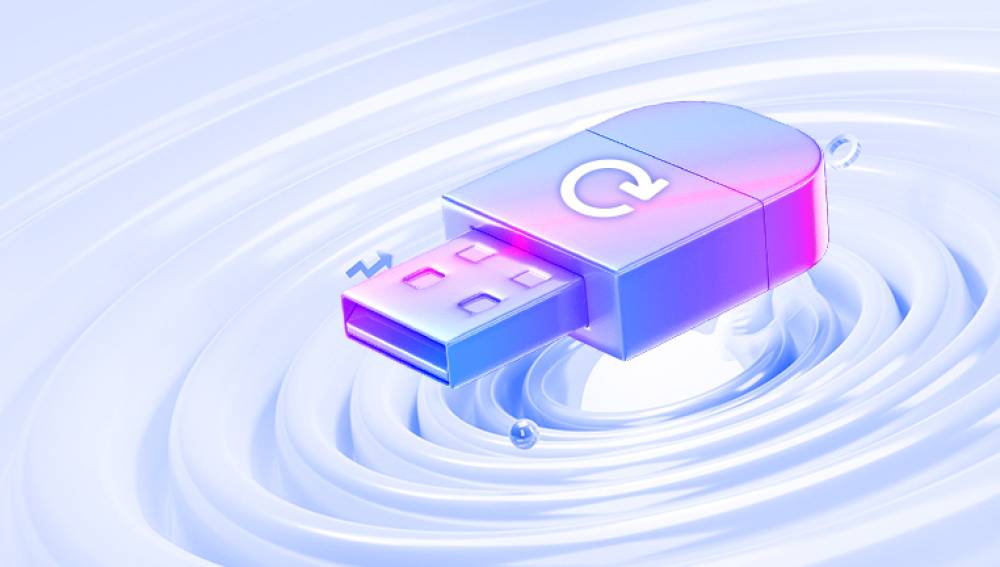Data loss can occur due to various reasons, such as accidental deletion, formatting, corruption, or physical damage. When these situations arise, USB flash drive recovery services play a crucial role in retrieving valuable information.
USB Flash Drive Data Loss
1. Common Causes of Data Loss
Data loss on USB flash drives can occur for several reasons:
Accidental Deletion: Users may accidentally delete files without realizing it, leading to immediate data loss.
Formatting Errors: Formatting a drive can erase all data, leaving the user without access to important files.
Corruption: File system corruption can occur due to improper ejection, virus infections, or unexpected power outages.
Physical Damage: Dropping or damaging a USB flash drive can render it unusable, leading to potential data loss.
File System Incompatibility: Using the drive on different operating systems without proper formatting can lead to compatibility issues and data inaccessibility.

The Recovery Process
2. Steps in USB Flash Drive Recovery
When faced with data loss, the recovery process generally follows these steps:
Assessment: A preliminary evaluation to determine the extent of the damage and the chances of recovery.
Data Recovery Software: Utilizing specialized software to recover deleted or lost files. Many software solutions can perform scans and retrieve files from formatted or corrupted drives.
Physical Recovery (if needed): For physically damaged drives, professionals may need to perform hardware repairs in cleanroom environments to retrieve data.
Data Backup: Once recovery is successful, backing up data is critical to prevent future loss.
DIY vs. Professional Recovery Services
3. When to Use DIY Recovery Software
While several DIY data recovery software options are available, they may not always be effective. These tools are suitable when:
Files Were Recently Deleted: The likelihood of recovery is higher shortly after deletion.
No Physical Damage: The USB flash drive is functioning correctly, and the data loss is due to software issues.
Basic Recovery Needs: Simple recovery needs may not require professional services.
4. When to Seek Professional Help
Professional recovery services are recommended in the following scenarios:
Severe Damage: Physical damage that could jeopardize data integrity.
Critical Data Loss: When the lost data is irreplaceable or mission-critical for personal or business use.
Complex Recovery Situations: Issues involving file system corruption or severe virus infections.
Professional USB Flash Drive Recovery Services
5. What to Expect from Professional Services
Professional USB flash drive recovery services typically offer:
Expertise: Trained technicians with specialized knowledge in data recovery.
Cleanroom Facilities: Secure environments to handle physical repairs without contamination.
Advanced Tools: Access to cutting-edge recovery tools and software that may not be available to consumers.
Success Rates: Higher chances of successful recovery due to experience and expertise.
Choosing the Right USB Flash Drive Recovery Service
6. Factors to Consider
When selecting a recovery service, consider the following:
Reputation: Look for reviews, testimonials, and case studies to gauge the service's reliability.
Experience: A company with a long track record in data recovery will likely have the necessary expertise.
Certifications: Certifications such as ISO 9001 can indicate adherence to quality standards.
Free Evaluation: Many reputable services offer free assessments to determine recovery possibilities before charging any fees.
Pricing: Understand the pricing structure and whether it includes all services. Be wary of companies that offer significantly lower prices than competitors.
Cost of USB Flash Drive Recovery Services
7. Pricing Structure
The cost of USB flash drive recovery services can vary widely based on several factors:
Extent of Damage: More severe damage often leads to higher recovery costs.
Type of Recovery: Logical recovery (software-based) is usually less expensive than physical recovery (hardware-based).
Urgency: Expedited services may incur additional fees.
Data Size: Larger volumes of data may result in higher charges due to the complexity of the recovery process.
Preventing Future Data Loss
8. Best Practices for Data Management
To minimize the risk of future data loss, follow these best practices:
Regular Backups: Regularly back up important data on multiple devices or cloud storage.
Safe Ejection: Always safely eject USB drives to prevent corruption and data loss.
Use Antivirus Software: Protect your devices from malware and viruses that can corrupt files.
Check File Systems: Ensure compatibility between different operating systems when using USB drives.
USB flash drive recovery services are invaluable in the face of data loss. Understanding the causes, recovery processes, and the difference between DIY and professional services can empower users to make informed decisions. By choosing the right recovery service and implementing preventive measures, individuals can safeguard their data and navigate the challenges of digital storage with confidence.




